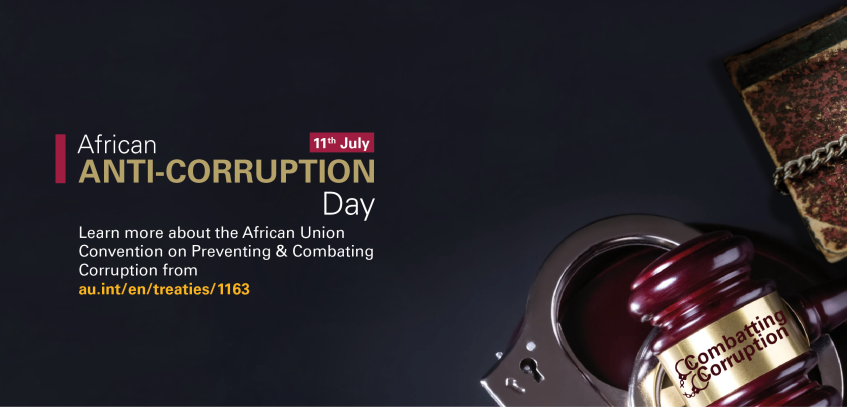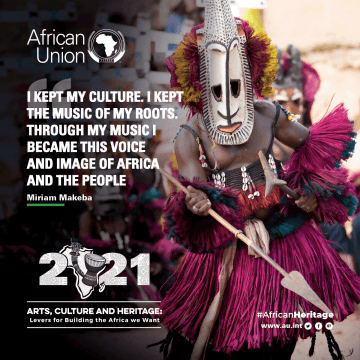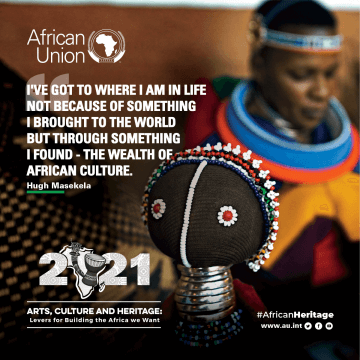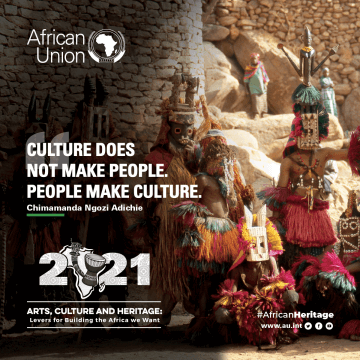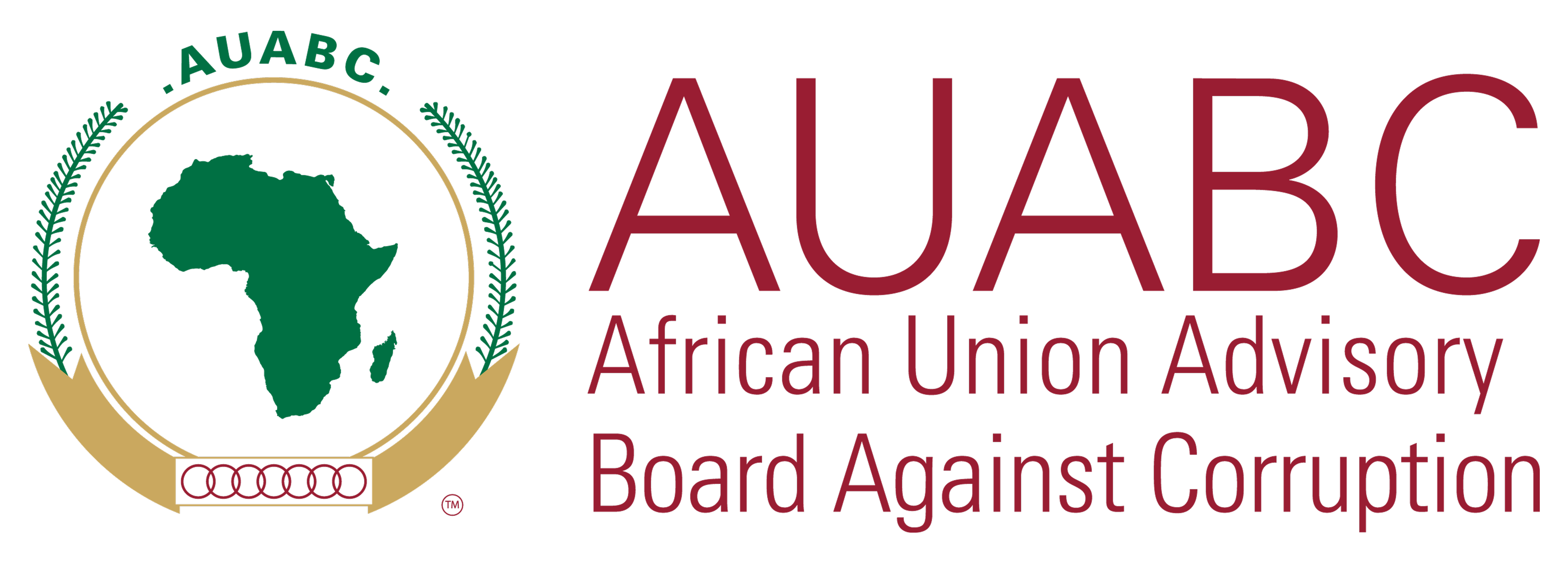The African Union Advisory Board on Corruption will lead African Anti-Corruption Day events convened under the theme “Strategies and Mechanisms for the Transparent Management of Covid-19 Funds”.
About the African Anti-Corruption Day
In recognition of the vast progress that has been made and cognizant of the need to continually reflect on approaches to end corruption, the African Union designated 11 July as the African Anti-Corruption Day.
This year will mark the sixth edition of the African Anti-Corruption Day which will be commemorated under the theme “Strategies and Mechanisms for the Transparent Management of Covid-19 Funds”. The day shall serve as a basis for all anti-corruption stakeholders to reflect and dialogue on the strategies and mechanisms taken on the transparency in management of Covid-19 funds.
Since the pandemic started, media has been awash with news of corruption, theft and mismanagement of funds as governments responded to Covid-19. These were related to lack of adherence to transparency and accountability measures in procurement processes, instances of waste, mismanagement in procurement of Covid-19 supplies and other reliefs such as safety nets and cash transfers. The neglect of transparency and accountability norms may have impacted on countries that were already facing governance challenges thereby contributing to the further weakening of the fight against corruption. This will also focus on the implementation of the African Union Convention on Preventing and Combating Corruption (AUCPCC) that was adopted in Maputo, Mozambique on 11 July 2003 and came into force in 2006. To date, the Convention has been ratified by 47 Member States of the African Union. Since adoption of the Convention, African states have made significant strides in the fight against corruption including the enactment of national laws and the creation of anti-corruption agencies.
The proceedings of the day will therefore set the stage for what should be a great discussion on why it is important for Member States to get back to the drawing board – and work towards restoring public trust with efficient and effective evaluation mechanisms of Covid-19 Funds. They will lead to a reflection of the role of youth, women, RECS, NACAs and the general public in the anti- corruption crusade especially in the wake of emergencies such as the pandemic.
Methodology
The event will be held in a hybrid format in Zanzibar, in conjunction with key stakeholders such as the Prevention and Combating Corruption Bureau (PCCB) of Tanzania and Zanzibar Anti-corruption and Economic Crimes Authority (ZAECA). In attendance will be various other stakeholders including the youth – because we believe that they have the power and responsibility to change the culture for better management and utilization of resources in Africa. Prior to the physical event, an online campaign beginning 4th July to scale up advocacy calling for transparent management of Covid-19 resources will be mounted.
Get involved
You can participate in the celebration of the African Anti-Corruption Day by:-
- Organizing creative activities in your country to mark 11 July;
- Urging your country to ratify, implement and report on its compliance with the African Union Convention on Preventing and Combating Corruption;
- Raising awareness on the negative impact of corruption in your community;
- Reporting cases of corruption within your respective Countries to the relevant Anti-Corruption Agencies;
- Promoting anti-corruption champions and publicizing stories of success in fighting corruption;
- Using the communication tools on publications and at events;
- Sending a message to your networks about the campaign;
- Tweeting about the day using the hashtag #AfricaAgainstCorruption and tagging @AUABC_; and
- Committing to an accountable and transparent lifestyle.
Physical events will be held at Zanzibar, Tanzania. To participate, contact - auabcregistry@africa-union.org
Key Messages
There was and continues to be widespread corruption in Covid-19 related procurement and contracting. Member States needs to do more to regain the trust of the Public;
• There has been widespread data manipulation and lack of transparency in how Member States have dealt with resources for Covid-19 funds. Opening up and publishing data going forward would work towards governments regaining public trust;
• Many African young peoples’ livelihood and education were affected by the Covid-19 Pandemic. Tailored approaches are needed to inform the youth of the dangers of corruption but also most importantly, their role in fighting corruption;
• Member states need to promote accountability and transparency measures in procurement
• RECs play an important role in working to reverse the impact of the Covid-19 Pandemic on health and development of Member States;
• Endemic corruption happening before Covid-19 set in endangered a lot of African livelihoods and continues to do so;
• There is need to work with the Civil Society and to support their work in monitoring Member States spending and delivery of health services to citizens; and
• Technology is a very important tool that should be harnessed to improve transparency and help reduce opportunities for corruption. E- procurement systems, digitized budgets go a long way in building the citizens trust.
Resource and Reference Materials
Further inquiries should be directed to:
Submit your request to auabcregistry@africa-union.org or info@auanticorruption.org
Ms. Doreen Apollos: Information and Communication Directorate: ApollosD@africa-union.org








